In the midst of Britain’s prison crisis, Christian organisations are pioneering creative approaches to rehabilitation, offering much needed hope and transformation to inmates. Emma Fowle reports
Recent news stories about the prison system in the UK make for grim reading. Despite spending more than £7bn each year on locking up nearly 90,000 people, our prisons are “overcrowded, understaffed, and under-resourced”, according to the Prison Advice and Care Trust (PACT). In their Picking Up the Pieces report, the Christian charity describes our teetering system as being “characterised by high levels of violence and mental health need, with much of the estate housed in ageing buildings not fit for purpose”.
England and Wales have one of the highest imprisonment rates in Western Europe. The number of inmates has risen by 93 per cent in 30 years. We are incarcerating more people for longer, yet reoffending rates are not dropping. An independent review recently noted that overcrowding meant the system was days from collapse on three separate occasions between autumn 2023 and the summer of 2024. As a result, more than 26,000 prisoners were released early under emergency measures. Yet despite thousands of criminals walking free, ministers have already warned that jails in England and Wales will hit capacity again within a year. In Scotland, the number of people in prison has already risen back above the level which previously sparked the early release.
In the midst of such crisis, the Prison Reform Trust concluded that Britain’s jails have “lost all sense of their primary purpose, which is to create order, predictability and the opportunity to reset”. Instead of rehabilitation, they have become places where traumatic experiences are compounded, addictions increase and a punitive system keeps criminals locked into a cycle of crime.
A redemptive arc
Dr Gwen Adshead has spent much of her career working in prisons and secure hospitals. A forensic psychiatrist of international renown, Adshead delivered the BBC’s Reith Lectures last year, a four-part discussion on the nature of evil and the process of rehabilitation. She is highly critical of the punitive nature of Britain’s justice system, arguing that it is “incoherent” to expect punishment alone to bring about change – a point of view that is backed up by “decades of evidence”, she says.
That isn’t to say, however, that Adshead is soft on crime or thinks compassion alone can transform violent criminals into law-abiding citizens. In a recent interview with this magazine, she said she fully understands “how important it is to constrain people whose minds are full of cruelty and madness”. Yet rehabilitation can only begin when the prison system is able to help offenders “take their own cruelty seriously”, she says.
It’s not so much about preaching to the lost, as extending the offer of grace that we so need to receive ourselves
Adshead talks about this process in great detail, explaining how part of her job is to help prisoners pick through “the dust and rubble of the offence” in order to fully accept what they have done. “Once they’re able to acknowledge that they made a dreadful mistake, that they saw the world through a lens of madness and cruelty they might then say: ‘How can I make sure that I don’t do anything like this again?’”
This, says Adshead, is where real change can happen. And it is also where the Christian faith can offer a unique hope, because it starts from a position that to err is human. “There’s an acceptance of mistakes and second chances and of being invited to try again with help.” (Read the full interview here)
Lament, repent, ascent
This idea is at the heart of The Psalmists, a group of people who take poetry into prisons, headed by Joshua Luke Smith, who tells me that when he was first invited to perform his poetry in a prison ten years ago, he was nervous about how it would be received. But as soon as he saw “the connection between the men and the poetry”, something was birthed in him.
Almost two-thirds of adult prisoners in England and Wales have literacy levels below those expected of an eleven-year-old. As such, poetry and prisons may seem unlikely bedfellows. Yet Smith and his team are adamant that it can work in any setting. “When I start my sessions, I tell them I have dyslexia, ADHD. I was expelled from school three times. I left with no GCSEs, no A levels. And poetry has been the defining expression of my life,” says Smith. “These guys write the most compelling pieces [because] they don’t have the academic stumbling blocks to consider whether this phrasing is correct…they just put it on the page.”
Today, The Psalmists work in several prisons across the UK. The structure of their workshops mirrors the arc of rehabilitation that Dr Adshead also advocates. They use Psalm 51 as an entry point, written by King David after the prophet Nathan confronted him over his adultery with Bathsheba and subsequent murder of her husband, Uriah. “It is literally a poem written by someone who’s got caught,” says Smith. “If David had written that psalm today, he’d be writing it in prison.”
The first two verses read: “Have mercy on me, O God, according to your unfailing love; according to your great compassion blot out my transgressions. Wash away all my iniquity and cleanse me from my sin.”
The Psalmists use this to introduce the concept of lament, the first of three themes used in their workshops. “It gives the guys an opportunity to name their pain,” explains Smith – acknowledging both the sorrow a person may feel and the injustice they may have experienced. It is an “interesting dynamic”, he notes, to acknowledge that: “you are here, in part, because you’ve had pain that hasn’t been processed. You’ve got hurt in you that’s not had a place to be expressed.”
Next comes repentance. In this session, inmates are encouraged to face the truth that as well as experiencing suffering themselves, they have also “added to the suffering in this world”.
Smith notes that while ‘repent’ can be a “heavy word”, it works. He shares a story of a drug dealer who did not see those who bought drugs from him as victims. Yet the poetry workshop unlocked something. Writing a letter to his children, he was able to finally understand how his actions had consequences in their lives; how the SWAT team busting down his front door must have impacted them. “I mean, he’s crying reading it to me. I’m crying hearing it. He’s taking complete responsibility for what he’s done,” says Smith. “But what he said was: ‘Without the expression of writing, I wouldn’t have been able to access the emotion or the feeling I needed to get there.’
“Writing is for the soul what the mirror is for the body,” says Smith. “A lot of these guys are desperate to change and just don’t have tools. What we offer is an opportunity to develop an objective relationship to your life. You’re going to see your life in a way you haven’t seen it before.”
The final stage of The Psalmists’ programme is called ‘ascent’. This is where prisoners are invited to look beyond their current suffering and acknowledge that there is a hope for the future – no matter the length of their sentence or the severity of their crime. It is into this space that the study of the nature of God – or theology – really has something to offer. But is there really a demand for theological study inside UK prisons?
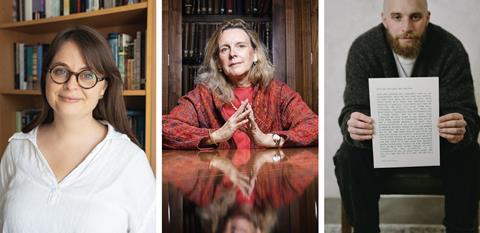
Answering life’s big questions
In 2018, Sarah Coppin joined a five-day mission to a maximum-security jail in England with Kairos Prison Ministry. The experience changed the course of her life, she tells me. The director of Kairos told the volunteers about the Prison Seminaries Foundation, a programme that plants seminaries inside American prisons, equipping inmates who come to faith to serve on mission while still serving time. “He and his wife had been praying for over 20 years that they would see something similar happen in the UK,” says Sarah. “I felt the Lord speak to my heart saying: ‘You could do that.’”
Five years later, Sarah began studying for an MA in theology at Westminster Theology Centre (WTC). There, she met Heather, a prison chaplain, who told Sarah that she had a cohort of men inside who were desperate to study the Bible. The pair approached Lucy Peppiatt, WTC’s principal, who revealed that she had also been praying into the possibility of developing a prisons ministry for more than a decade. Soon after, WTC launched a series of theology taster sessions in HMP The Mount. Sarah, who now leads the prison programme, says they have been overwhelmed by the response. They are now developing online courses to increase capacity. Next year they hope to launch the UK’s first university-accredited CertHE in theology inside a prison.
In prison, inmates are forbidden from challenging authority. But in Hedley’s sessions, everything is up for grabs
Dr Freddy Hedley teaches biblical studies at WTC and recently ran a session in The Mount on the doctrine of creation as found in Genesis. “I’d been told to expect quite a small group,” recalls Hedley. “Maybe eight or so people.” When he arrived, there were nearly 50 – all from a variety of faith and educational backgrounds.
While some may assume that theology is an academic pursuit far detached from the realities of everyday life – let alone life inside a prison – Hedley is quick to explain that it is just the opposite. At its core, theology is about “discovering God”, he says. It’s an opportunity for “rich engagement with God’s word and his revelation of himself”.
Paradoxically, Hedley’s experience has been that removing the “noise of life” can be hugely beneficial when it comes to studying theology. Those who are confined to a prison cell are perhaps more open than most to reflecting on the questions that really matter.
“You’re put in an environment where you’re having to ask fairly fundamental questions about who you are in the world, when your place in the world has been dislocated from you,” Hedley says. No wonder that in this context “the transformative nature of the gospel” can have a profound effect.
Hedley adds that his classes are deliberately designed to “speak about transformation in ways that aren’t shallow”. He covers the same content he would typically deliver on a WTC Masters-level course, and in the same format. Students are encouraged to contribute, question and debate. Prison is often an environment where inmates are forbidden from challenging authority. But in Hedley’s sessions, everything is up for grabs.
“There are a series of values that I carry in my head that are being put to the test in a prison classroom. These are that everyone is, fundamentally, equally human and has the same right to reply and the same capacity for theological reflection.” In a setting where prisoners are spoken to in ways that are often “demeaning”, these opportunities are about “valuing” those inside as created in God’s image, says Hedley. And this is also central to the gospel’s transformative message.
“Absolutely core to our understanding of God as creator is that he creates humanity in the image of God. It’s a kingly language in the ancient world. To be in prison and say: ‘Do you know that God would view you as kings?’ They will have spent an awful long time being told something very, very different to that.”
David’s story
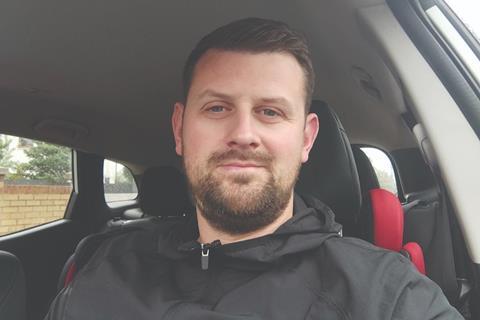
I was heavily involved in a life of gang violence in Glasgow from the age of 15. I started carrying a knife at the age of 17 and more than once, I used it on someone.
I first saw Tough Talk (see box below) in 2009 in Polmont Young Offenders Institution. I remember two or three really muscly guys talking about steroid abuse. I didn’t reflect much on the faith element, I just remember how these guys from the East End had been into violence and drugs, steroid abuse, gyms, powerlifting, had won all these titles, got themselves in complete messes and then had their lives turned right around – I thought that was wild.
I didn’t become a Christian when I saw Tough Talk, but it affected me. Life slows down in prison. You have time to reflect. Outside, I’d be endlessly selling, dealing, running, fighting, using – it was manic. When I was inside, I’d sober up and get fit. I would think clearly.
People are more open in prison. They’ve hit rock bottom. They can’t pretend. They are looking for change, but they don’t know how.
I became a Christian aged 21 when I was in HMP Kilmarnock. The chaplain there was great. He invited me to their fellowship, and they helped me explore the faith. I started reading the Bible and I read books about people’s lives being changed by God. I started going to chapel. They often had people coming in with testimonies. It was one of those times that I gave my life to Christ.
After I left prison, though, I got sucked back in. I kept on with the drug use, the dealing, the alcohol and the violence. I genuinely had made a commitment, but I couldn’t sustain it on the outside.
In 2012, I got sent back to prison. I recommitted my life to God, and when I got out, I decided to get serious. I reconnected with church. I got baptised. I signed up for a two-year Christian leadership course at Bible college, and suddenly I was surrounded by Christians.
After Bible college, I joined a team that was planting a church in a deprived area of Glasgow. Then a friend and I set up a church plant in the area I grew up in. I’m now project manager of Prison Fellowship Scotland. I manage 170 volunteers, liaise with prisons and chaplains, launch Alpha courses, preach and run Bible study groups. I’ve been to every prison in Scotland. I am sharing the gospel with people who are in the same situation I used to be in, and I love that.
I’m so grateful to God now. I’m not physically a prisoner, which is just amazing – I literally thought that’s all I ever had to look forward to in life. But more importantly, I’m not a prisoner to my sin. I’m free.
David York’s story has been abridged from Lifting the Darkness: Thirty years on the road with Tough Talk (Authentic Media). Used with permission.
What it means to be human
These ideas of equality and dignity are central and fundamental to the Christian faith. They are universal, meaning they apply inside prisons as much as they do outside. It’s one of the reasons why Barry Boyton has chosen to perform plays inside prisons for the past three decades.
The founder and director of Oddments theatre group never intended to enter this ministry. The adventure began when he accidentally included a prison chaplain in a mailing inviting local churches to one of Oddment’s productions. “He very kindly wrote back and said: ‘I’m really sorry, my congregation can’t come for obvious reasons. But would you come to us?’ Somehow, within about six months, we were working with four prisons. And now we work in prisons from Dorset to Dumfries!”
Theatre is another medium that has often been stereotyped as exclusive and elitist, but Boyton argues that in reality, it is anything but. “Everyone’s human. Everyone needs stimulation,” says Boyton, even people who have done incredibly bad things. “Everyone needs hope. And we take in a message of hope.”
Through their plays, often based around the testimonies of other prisoners who have come to faith, Oddments offer not only a dignifying experience and a moment of levity in an otherwise tough environment, but also the chance for real change.
While watching a play might seem trivial, or even a privilege, Boyton doesn’t see it that way. “You can improve a man’s education, change his appearance and stuff, but if you change the core of the man – if God fills someone with the Holy Spirit – it changes the whole being. It changes their perspective on life.
“Theatre touches the soul,” he explains, “Your past doesn’t have to define your future.” This is the message of redemption, made easier to understand through live action drama. Later this year, Oddments will be taking the story of John Newton, the slaver trader-turned abolitionist, to prisons across the country. Boyton describes Newton as: “a man with no morals who lost his way, found Christ, slipped back and then found Christ again.
“The prisoners really relate to that,” he adds.
“You know, where sin abounds, grace abounds more,” says Boyton [see Romans 5:2]. “Because they’ve been convicted, they’re very aware of their sin and, in a funny way, that’s a great place to start.” He shares stories of hardmen breaking down, hearing echoes of their own lives played out before them. He knows of former prisoners who are now training to be priests, as well as prison guards who have been deeply affected by their productions.
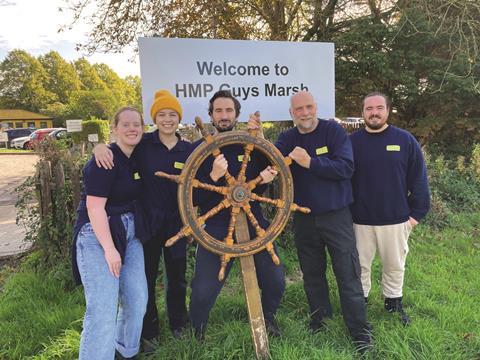
In the same boat
This willingness to accept our own imperfections – and consequently our need for forgiveness and a saviour – can sometimes be lost in the busyness of ordinary life. Many in the Church, posits Adshead, would do well to learn from those on the inside – and recognise that we are not so far removed. “I know that I am a sinner – like the people I’m working with,” she says. “Perhaps I was unkind to my daughter-in-law or avoided calling my friend who’s dying, because it makes me uncomfortable to think that they’re dying, for example.” The ways in which we sin might not be criminal or violent, but they require recognition and repentance nonetheless if we wish to transcend our base state and receive all that God has for us.
Instead of rehabilitation, prisons have become a place where trauma is compounded, addictions increase, and a punitive system keeps criminals locked into a cycle of crime
Through poetry, theology and theatre, prisoners are also being offered this opportunity to walk the gentle arc of rehabilitation and reconciliation. This most democratic of offers – from a creator God who created us all and “causes his sun to rise on the evil and the good” (Matthew 5:45) – is the ultimate leveller.
It’s not so much about preaching to the lost, as extending the offer of grace that we so need to receive ourselves. “I just look at these guys and I’m like: ‘I can see the face of God on them,’” says Smith. “Christ has hidden himself in the least of those. And so, in prison, it feels like there’s a proximity to our Lord. It’s just such a profound privilege.”
Inside and out
Five other Christian ministries taking the good news into prisons – and supporting prisoners when they come out
Gospel Inside
Last year, Premier Gospel, the UK’s leading gospel radio station, launched Gospel Inside at HMP Isis. Over eight weeks, the sessions provided inmates with an opportunity to engage with gospel music and its message of hope, inspiring change and fostering a sense of belonging. Songwriting workshops and professional coaching culminated in a choir performance and letter-writing exchange with local churches.
Tough Talk
Tough Talk are a group of men with unsavoury backgrounds and powerful testimonies of the life-changing power of the Holy Spirit. Bodybuilders, powerlifters, ex-football hooligans and criminals, they have been lifting weights, putting on strongman shows and using them to grab people’s attention and share their stories for more than 30 years. Tough Talk have taken their message of saving grace and second chances into prisons, churches, schools and drug rehabs around the world, including South Africa, Russia and the Philippines. tough-talk.com
Prison Fellowship
Through initiates such as letter writing, pastoral support, a prayer line and projects to allow prisoners to send gifts to their children at Christmas, Prison Fellowship aims to show Christ’s love to people in prison. They minister in prisons across the UK and Ireland. pfi.org
Kairos Ministries
Kairos Ministries offers short courses inside prisons that introduce prisoners to Christianity, alongside ongoing mentoring to help them grow in their personal faith. Outside, they offer short residential retreats for female relatives of those in prison, supporting them to connect with Christians and other families in similar situations. kairosprisonministry.org.uk
The Welcome Directory
Leaving prison – even after you have made a commitment to Christ – can be hard. The Welcome Directory helps faith communities to support people leaving prison and connect Christians coming out of the prison system with churches who will welcome them. welcomedirectory.org.uk













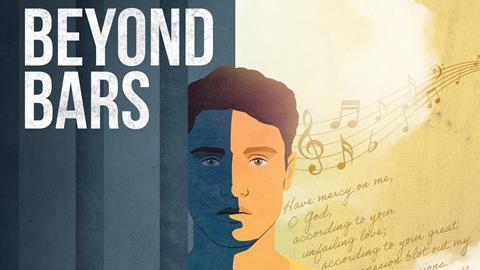


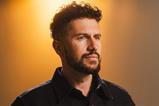






















No comments yet